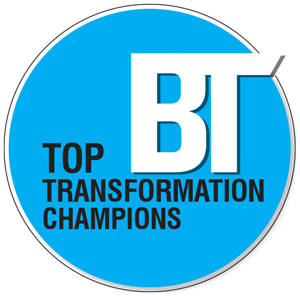Top Transformation Champions: Building a reliable network infrastructure

 The healthcare sector has been ahead of the curve when it comes to successfully adopting digital solutions. Since the expansive growth of medical data due to the digitalisation of records and new technologies, regional institutions have been providing exemplary services to their patients using infrastructure that supports high-performance communication.
The healthcare sector has been ahead of the curve when it comes to successfully adopting digital solutions. Since the expansive growth of medical data due to the digitalisation of records and new technologies, regional institutions have been providing exemplary services to their patients using infrastructure that supports high-performance communication.
The metro network infrastructure, an interconnected network of smaller medical devices, ensures quick and real-time transfer of information. Thanks to high-speed optical network connectivity and low latency 5G networks, the industry has been quick to recognise the potential of patient care that digitalisation can provide, including the likes of remote consultations or even telesurgeries.
A considerable number of the stalled efforts can be narrowed down to inefficient data management. The core of this can be broken into three elements: insecure storage, ineffective delivery, and inaccuracy of data. Experts at Ciena have noted that it often happens in cases where the network is not able to support massive capacities of data and respond to unpredictable bandwidth demands.
The purpose of technology is to build an efficient ecosystem for enterprises. By fusing software-defined control and adaptation with big data analytics, intelligent automation enables service providers to employ in-depth network knowledge to drive adaptive automation of their services and operations. For example, the operational environment for service providers is becoming more complicated.
Network operators can make truly intelligent automation feasible and manage their organisations more intelligently and effectively by utilising software specifically designed for dynamic Network Functions Virtualisation and Software-defined Networking environments.
While the demands in a new digital world are ever-growing, unreliable network performance is globally a leading obstacle in the digital transformation journey. Executives can stay ahead of the curve by asking whether the current network is static or whether the NOCs have the required technical support in place.
The Adaptive Network from Ciena delivers tailor-made solutions to current, urgent, and emerging needs with strategic network consulting, insights, and optimisation services.
There has been an increasing amount of interest in Web 3.0, especially the metaverse. While the fusion of virtual and real worlds had been in motion for over a decade the pandemic served as a catalyst. With increasing demand to meet virtually, the younger generation has become accustomed to the convenience that the metaverse can provide.
The metaverse offers enhanced experiences and has the potential to change how organisations communicate, from shopping experiences and gaming to how business meetings are conducted and adapted for the virtual world. With rapidly unfolding technology and constantly evolving demands of end-users, businesses need to adapt their solutions to accommodate the metaverse.
The first step toward building a sustainable metaverse is network reliability. By evaluating the current network setup, an enterprise can identify upgrade opportunities for future capacity needs of creating a stable and reliable network. A survey by Ciena offers insights into emerging metaverse trends in the Middle East.
It is anticipated that the ICT sector will emit up to 5.5% of all carbon emissions by 2025. Further growth in emission levels can be expected as Internet usage becomes more integrated with daily tasks and lives. Therefore, businesses need to evaluate their internal operations and the impact on their carbon footprint.
Ciena’s WaveLogic product line has prevented more than 4.5 million metric tons of carbon dioxide from entering the environment over the course of more than ten years. The WaveLogic 5 Extreme and WaveLogic 5 Nano have also led to over 50% reduction in space and power consumption, compared to the previous generations of technology.
For network operators, relying on sustainably-designed yet power-efficient networks can benefit not only the environment but the financial investments made by their customers. Ciena has also committed to being carbon neutral across global operations by 2024.
Key takeaways
- Unreliable network performance can severely hamper the organisation’s digital transformation initiatives.
- As the Internet becomes more integrated, businesses will need to evaluate the carbon emission from internal operations.
- Ciena’s Adaptive Network delivers tailor-made solutions for existing, urgent, and emerging network needs.
- Intelligent automation can help service providers employ in-depth network knowledge for adaptive automation of their services and operations.






